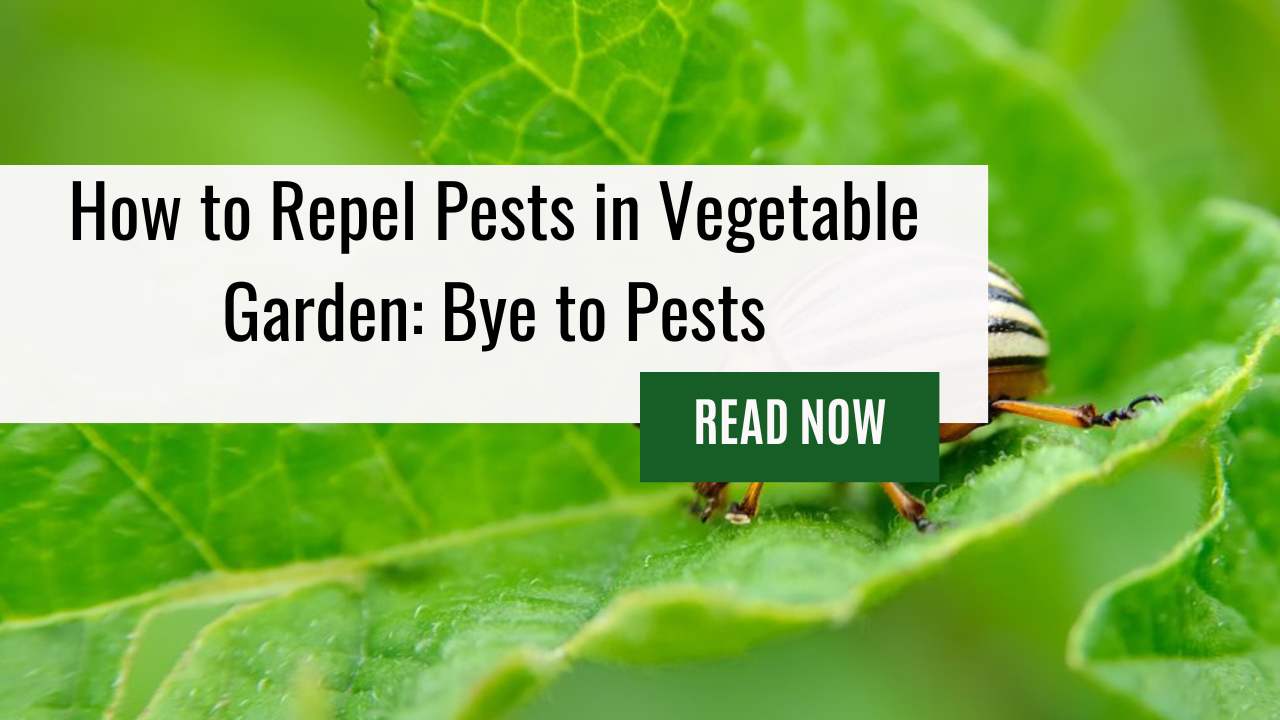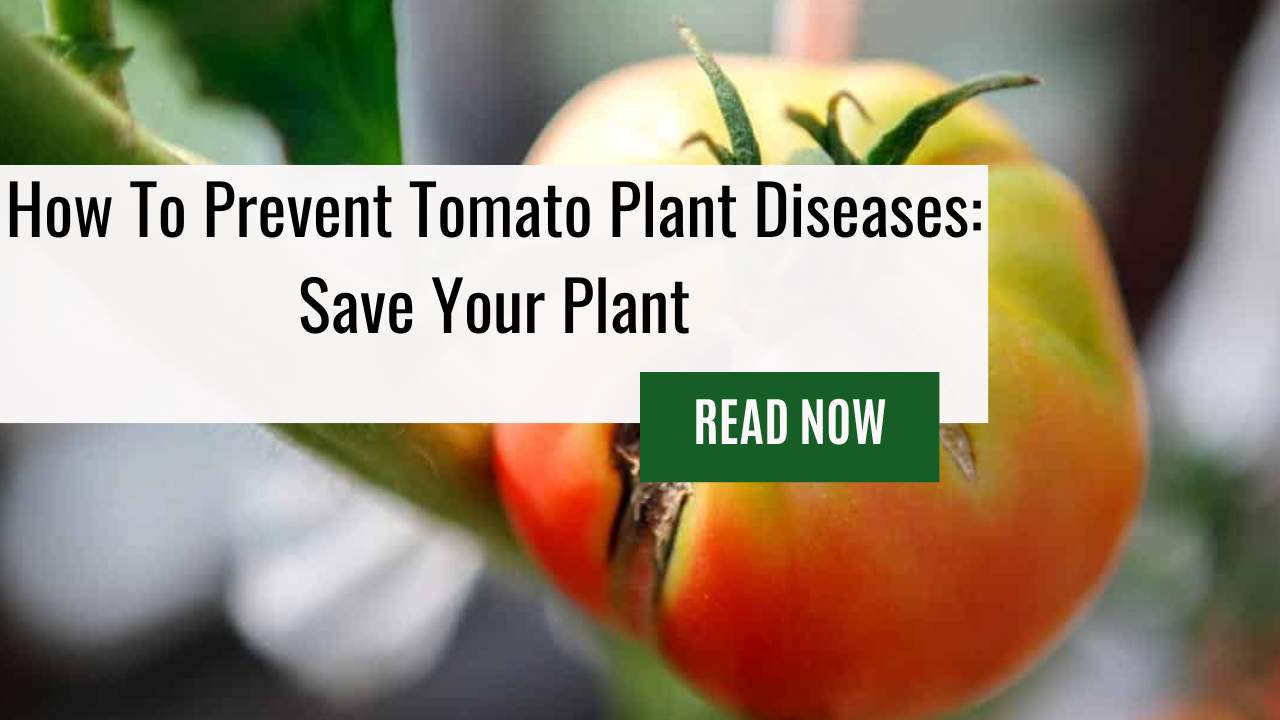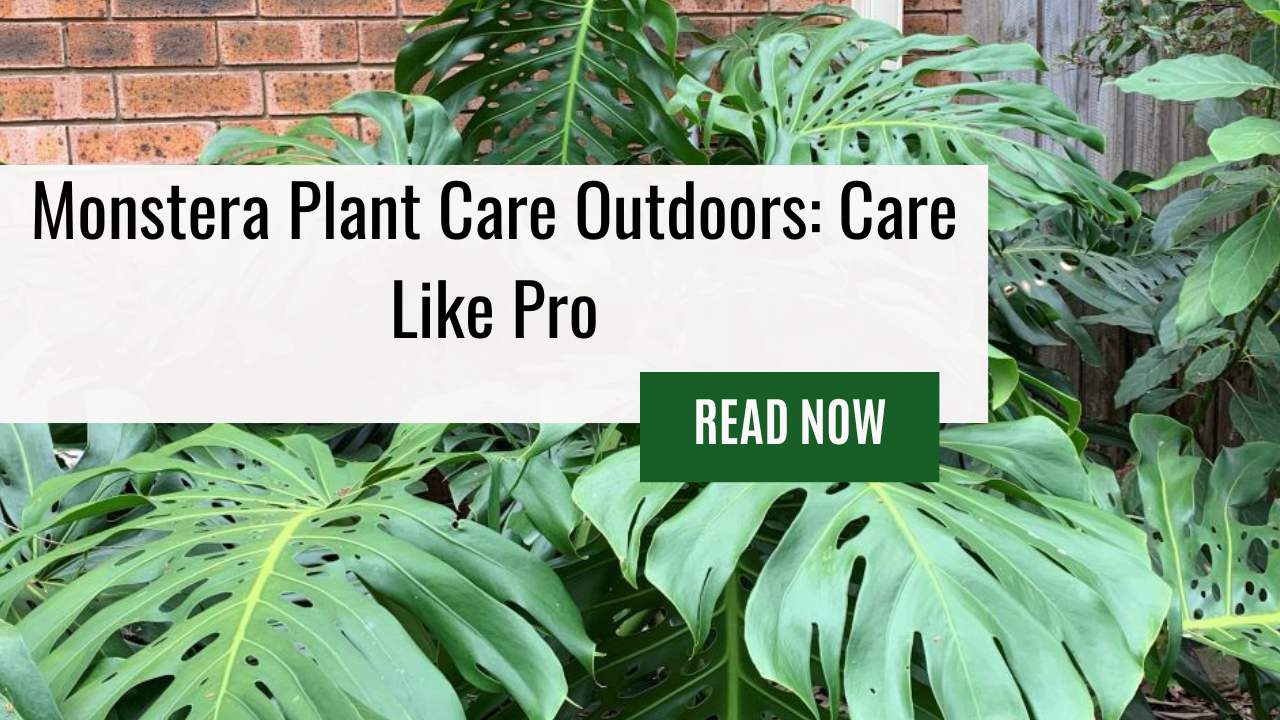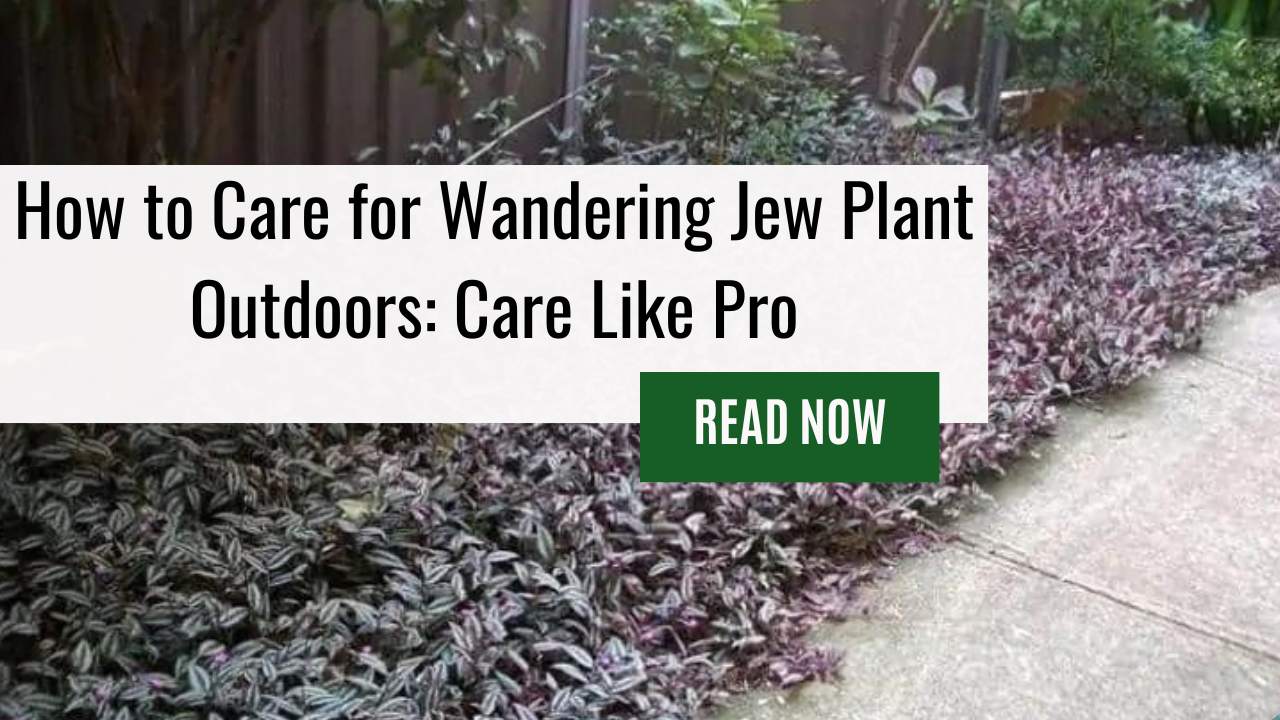Welcome to the world of vegetable gardening, where you get to enjoy fresh produce right from your yard.
However, as much as it is fulfilling and exciting to grow vegetables, pests can be a significant setback in this venture.
These tiny creatures seem to have an insatiable craving for our crops, leaving us with nothing but disappointment. But don’t worry; we’ve got you covered!
In this article, we’ll share tips on how to repel pests in your vegetable garden effectively. We understand that mastering pest control requires patience and consistency – qualities most gardeners possess already.
So sit back and grab a pen and paper because these tips will help you achieve mastery over those pesky critters once and for all!
Identifying The Type Of Vegetable Garden Pests
They say that knowing your enemy is half the battle won. The same can be said about pests in your vegetable garden.
Identifying the type of insect you’re dealing with is crucial to finding an effective solution. Pests naturally gravitate towards vegetable gardens because they are a source of food and shelter.
Some common insects that invade vegetable gardens include aphids, caterpillars, and beetles.
Each insect has its own unique characteristics, feeding habits, and lifecycle stages that make them more or less susceptible to certain types of control methods.
Thus, it’s important to properly identify which type of insect is causing problems before taking any action.
Inspecting Your Plants For Signs Of Infestation – Initial Step of How to Repel Pests in Vegetable Garden
Now, it’s time to take action and repel them. One effective way to do this is by using natural pest repellents such as garlic spray or neem oil.
These can be easily made at home and applied directly onto the leaves and stems of your plants.
However, before applying any form of pesticide, it’s crucial to inspect your plants thoroughly for signs of infestation.
Look out for yellowing or wilting leaves, holes in the leaves or fruits, or sticky residue on the plant’s surface.
Once you’ve determined which plants are affected, remove them from your garden immediately to prevent the further spread of pests.
By combining regular inspections with natural pest repellents, you’ll be able to keep your vegetable garden healthy and thriving all season long!
Remember that understanding the impact of insects on your plants is also key to keeping them safe. Insects can cause significant damage to not just one plant but an entire crop if left unchecked.
The next section will delve deeper into how different insects affect various types of vegetables and what measures you can take to minimize their impact.
Understanding The Impact Of Insects On Your Plants
Your vegetable garden is like a kingdom, and your plants are the rulers.
Insects play different roles in this kingdom: some are loyal subjects that help maintain balance, while others are traitors that threaten to overthrow the hierarchy.
Understanding these roles is crucial in protecting your crops. Insects can have a significant impact on your plant’s growth and yield.
Some insects pollinate flowers, which leads to fruit formation, but others suck sap or consume leaves, leading to stunted growth or even death of the plant.
Knowing how each insect affects your vegetables helps you identify pest problems early on and take appropriate measures for pest control.
Using Natural Methods to Deter Pests – Companion Planting & Homemade Sprays
If you’re looking for a natural way to repel pests in your vegetable garden, companion planting is an excellent option. Companion planting involves strategically growing certain plants together to benefit one another and deter harmful insects.
For example, planting marigolds with tomatoes can help keep aphids away while attracting beneficial pollinators like bees.
Another method of natural insect removal is using homemade sprays made from ingredients like garlic, neem oil, or vinegar.
These sprays are safe to use on vegetables and will not harm the environment. Simply mix the solution according to the recipe instructions and spray it directly onto the affected plants as needed.
With these natural methods at hand, you’ll be able to effectively repel pests without resorting to harsh chemicals that could harm both your health and your beloved vegetable garden.
By incorporating these practices into your gardening routine, you’ll be well on your way to mastering pest control naturally.
Next up, we’ll explore how introducing beneficial insects to your garden can further protect against pesky intruders.
Attracting Beneficial Insects To Your Garden – Using Good Bugs to Prevent Garden Pests!
Did you know that there are over 100,000 different species of insects in the United States alone?
While some may be considered pests in your vegetable garden, others can actually be beneficial.
Introducing these helpful bugs to your garden is a natural and effective way to repel pests without using harmful chemicals.
One great example of a beneficial insect is the ladybug. These little red beetles love to munch on aphids, which are notorious for destroying crops like lettuce and cabbage.
Other helpful bugs include lacewings, predatory mites, and even certain types of wasps.
By planting specific flowers or herbs in your vegetable garden or purchasing these insects from a reputable source, you can attract them to your garden and watch as they naturally keep pest populations under control.
As an added bonus, introducing beneficial insects not only helps with pest control but also promotes overall biodiversity in your garden ecosystem.
So instead of reaching for harsh chemical sprays when trying to repel pests in your vegetable garden, consider attracting some new six-legged friends instead.
In the next section, we’ll explore another natural option: applying insecticidal soap.
Applying Insecticidal Soap
Now that you have introduced beneficial insects to your garden, it’s time to consider other methods of pest control.
While these insects can be helpful in reducing the population of harmful pests, they may not completely eliminate them.
Therefore, it is important to incorporate other measures such as using organic pesticides and insecticidal soaps.
One effective way to repel pests in your vegetable garden is by using neem oil. This natural pesticide has been used for centuries to combat a variety of pests including aphids, mites, and whiteflies.
Neem oil works by disrupting the life cycle of these pests and preventing them from feeding on your plants.
To use neem oil for pest control, mix one tablespoon of neem oil with one teaspoon of dish soap in a gallon of water.
Spray this mixture directly onto the leaves and stems of your plants every seven to fourteen days depending on the severity of the infestation.
Remember to always test a small area before applying any new treatment to avoid damaging your plants.
Using Neem Oil For Natural Pest Control
One natural way to control pests in your vegetable garden is by using neem oil.
This organic pesticide is derived from the seeds of the neem tree and works effectively against a wide range of insects, including aphids, spider mites, and whiteflies.
To use neem oil for pest control, mix one tablespoon of pure neem oil with one gallon of water and add a few drops of dish soap to help the solution stick to plant leaves.
Apply this mixture onto affected plants every seven to fourteen days or as needed.
Not only is neem oil an effective pest control method, but it’s also safe for beneficial insects like bees and ladybugs.
With consistent application, you’ll be able to keep pesky bugs at bay while maintaining a healthy and thriving garden.
If you’re looking for additional ways to naturally repel pests in your vegetable garden, consider creating homemade insecticides using common household ingredients.
Creating Homemade Insecticides
As effective as neem oil may be at controlling pests, sometimes it’s not enough to repel all the unwanted critters in your vegetable garden.
There are times when you need something stronger and more potent – that’s where homemade insecticides come into play.
Creating your own insecticide is a great way to control pest infestations while keeping harmful chemicals out of your vegetable garden.
You can use common ingredients like garlic, hot peppers, and vinegar to make a natural spray that will keep pests away from your crops.
Not only is this method cost-effective, but it also allows you to have full control over what goes into the solution.
So if you’re looking for an alternative to chemical pest control methods, creating homemade insecticides might just be the answer you’re looking for.
As mentioned earlier, there are times when pests simply won’t budge no matter how hard you try to repel them using natural remedies. In such cases, implementing chemical pest control methods becomes necessary.
But before diving headfirst into these measures, it’s important to understand their potential downsides and risks.
Chemical pesticides can harm beneficial insects like bees and butterflies, pollute water sources, and even pose health risks to humans who consume contaminated produce.
Therefore, it’s crucial to approach chemical pest control with caution and always follow label instructions carefully to minimize any negative impact on both your garden and the environment.
Implementing Chemical Pest Control Methods
Now, let’s talk about implementing chemical pest control methods in your vegetable garden.
The use of pesticides is a common practice to control pests and prevent them from destroying crops. Pesticides are available in different forms such as sprays, granules, and baits.
Before using any pesticide, it is important to read the label carefully and follow the instructions for application. It is also essential to wear protective clothing such as gloves and masks while handling pesticides.
When choosing a pesticide spray, make sure that it targets the specific pests you want to control.
Remember that overuse or improper use of pesticides can harm beneficial insects and pollute the environment. So always use them with caution and only when necessary.
Now let’s move on to utilizing traps to catch insects.
Utilizing Traps To Catch Insects
One effective way to control pests in your vegetable garden is by utilizing traps.
Traps can be a great tool for catching insects that are causing damage to your plants, without having to resort to harmful chemicals or pesticides.
There are many different types of traps available for various pests, including sticky traps and pheromone traps.
Sticky traps work by attracting the pest with a scent or color that they find appealing, then trapping them on a sticky surface.
Pheromone traps work similarly but use scents that mimic the insect’s natural mating pheromones to lure them into the trap.
By using these types of traps strategically throughout your garden, you can catch many pests before they have a chance to do serious damage.
To prevent future infestations, it’s important to keep an eye on your garden regularly and dispose of any trapped insects promptly.
Besides, make sure to rotate crops each season and practice good sanitation practices such as removing dead plant matter from the area.
With consistent effort and attention, you’ll be able to maintain a healthy and thriving vegetable garden free from unwanted pests!
Preventing Future Infestations
Now that you have successfully caught the insects in your vegetable garden using traps, it’s time to focus on preventing future infestations.
One of the most effective ways to prevent garden pests is by deterring them from entering your garden in the first place.
There are several natural methods you can use to deter pests such as planting companion plants for the vegetable garden and practicing proper crop rotation.
Companion planting involves planting certain types of plants together that help repel pests or attract beneficial insects.
For example, marigolds are known to repel aphids and other harmful insects, while attracting bees and butterflies which are essential pollinators for many vegetables.
Crop rotation is another method used to reduce pest populations by moving crops around every season so that pests don’t build up in one area over time.
By taking these preventative measures, you can significantly reduce the likelihood of a pest problem occurring in your garden.
If despite your best efforts, persistent pest problems continue to plague your vegetable garden, seeking professional help may be necessary.
Insecticides should only be used as a last resort and with caution since they can harm beneficial insects and contaminate soil and water sources.
A professional pest control company will have experience dealing with specific types of pests common in your area and can offer safe and effective solutions without harming your garden ecosystem.
Remember, prevention is key to protecting your vegetable garden from unwanted insect visitors!
Seeking Professional Help For Persistent Pest Problems
If you’ve tried everything from companion planting to homemade insecticides and still can’t seem to shake off those bugs, it’s time to consider calling a professional pest control service.
These experts have access to powerful pesticides and other methods that can effectively eliminate even the most stubborn of garden pests.
Plus, they can provide valuable advice on how to keep your garden pest-free in the future.
Remember though, while pesticides do offer an effective solution for persistent pest problems, it’s important to use them responsibly and with caution.
Always read labels carefully and follow instructions closely to avoid harming beneficial insects or contaminating soil.
With a little bit of professional help and some careful planning, however, you’ll soon be back on track toward achieving a thriving and healthy vegetable garden!
Frequently Asked Questions
What Are Some Common Mistakes To Avoid When Using Natural Methods Of Insect Removal?
With regard to natural methods of insect removal, there are a few common mistakes that many people tend to make.
For starters, some folks believe that just because something is labeled as ‘natural’ or ‘organic,’ it means that it’s completely harmless and can be used without any precautions whatsoever.
This couldn’t be further from the truth!
Another mistake is assuming that one method will work for all types of pests; unfortunately, different insects require different approaches.
Lastly, not properly timing your pest control efforts can also lead to ineffective results. Remember: prevention is key!
Can Companion Planting Really Help Repel Pests In A Vegetable Garden?
The answer is yes! By simply choosing the right plants that complement each other, you can create an ecosystem that naturally deters harmful insects and promotes healthy growth.
For example, planting marigolds with your vegetables can ward off nematodes, while basil planted alongside tomatoes can improve their flavor and keep away tomato hornworms.
So if you’re looking for a natural way to protect your precious crops from pesky invaders, consider trying out companion planting techniques in your garden this season!
How Often Should I Apply Insecticidal Soap To My Plants?
Applying insecticidal soap to your plants can help prevent pests from taking over and causing damage. But how often should you apply it?
The answer depends on a few factors such as the severity of the infestation and weather conditions.
Generally, it’s recommended to apply insecticidal soap every 7-14 days as a preventative measure.
However, if you notice an increase in pest activity or new signs of damage, it may be necessary to apply more frequently.
Remember, mastering pest control requires patience, attention to detail, and a willingness to adapt your approach when needed.
Are There Any Natural Predators That Can Be Harmful To My Garden?
There are certainly some natural predators that can wreak havoc on your garden, but before we dive into those, let’s talk about the importance of having a balance in your ecosystem.
As for pests, there are often other creatures that prey on them and keep their populations under control. These ‘beneficial insects’ include ladybugs, lacewings, and praying mantises.
However, if you have an abundance of these beneficial insects, they may turn their attention to your plants instead of the pests they’re meant to be eating.
It’s all about finding that sweet spot where each creature is doing its job without tipping the scales too far in one direction or another.
What Are Some Signs That A Pest Problem Is Too Severe For Diy Methods And Professional Help Is Necessary?
Regarding pest problems in your vegetable garden, sometimes DIY methods just won’t cut it. But how do you know when it’s time to call in the professionals?
If you’re noticing extensive damage to your plants, or if you’ve tried multiple DIY solutions without success, it may be time to seek outside help.
Also, if you’re dealing with pests that are known carriers of diseases (like ticks or mosquitoes), it’s important to take action as soon as possible.
Remember: don’t hesitate to ask for assistance – seeking professional help can save both your sanity and your harvest!
Summing Up
So, you want to keep pests out of your vegetable garden?
Good luck with that. Unless you’re willing to set up a 24/7 guard post and hire an army of insect assassins, there’s no foolproof way to repel all the critters that might take a liking to your crops.
But don’t worry, we’ve got some tips for keeping those pesky bugs at bay – or at least minimizing the damage they cause.
Just remember: nature always finds a way. Sooner or later, those insects will figure out how to get what they want. But hey, isn’t it nice to think we can control something in this crazy world?




Leave a Reply